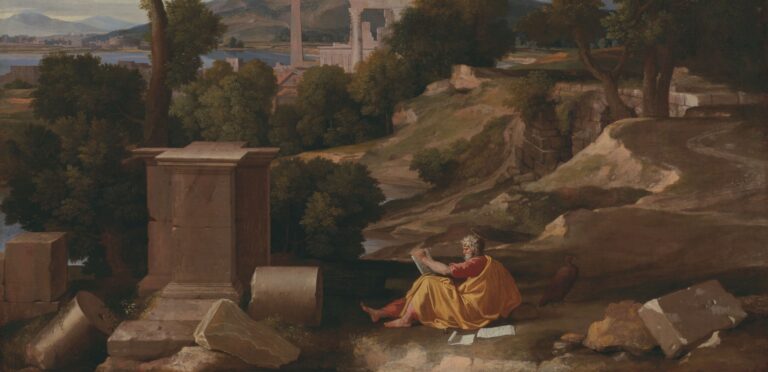This is part 3 in our series “Is Christianity Harmful to Society.” You can read parts 1 and 2, here and here.
Has Christianity as a whole done any good for mankind? Has it been more harmful or helpful? I think given what we know about history, Christianity has had a tremendously positive impact on society over the last 2000 years. Here, I’ll list a few examples:
Eradicating Slavery
Many people don’t know this but it was Christians and the Christian influence on society that eradicated slavery…twice! As the gospel spread through barbaric Europe after the fall of Rome, the practice of slavery became less and less. It virtually died out in Europe during the Middle Ages after the continent was saturated with the gospel. When slavery reappeared again, it was Christian political leaders and theologians who opposed it, some of which were Richard Baxter, John Wesley, and William Wilberforce to name a few.
Opposing Infanticide
This practice which was common among the Romans and Greeks was widespread until Christians started saving infants from being abandoned on the streets…many of whom were girls because it was more preferable in that culture to have boys than girls. Infanticide was outlawed in the fourth century thanks largely to the influence of Christians.
Building hospitals and hospices
There was little health care available to society before Christianity. The rich and soldiers had access to top-level care but by and large the main population had to go without seeing a doctor. That changed when Christianity started having influence. The Council of Nicea (325 AD) commissioned bishops to establish hospice care in every city where a church building existed. Soon hospitals and hospices existed throughout Christian Europe.1 Think also of Florence Nightingale, the founding of the Red Cross, etc.
Elevating Women’s status/rights
It was Christians who put an end to female infanticide during and after the Roman Empire. It was Christians who first started educating women who were not wealthy or come from wealthy families. After all, how are women supposed to read the Bible when they can’t read at all? It was Christians who put an end to child brides that are common in Muslim and pagan societies. Before William Wilberforce got involved, widows in India were burned on a pyre atop their dead husbands. Thanks to Christianity, widows are honored and have an opportunity to remarry someone else in India. It was Christian missionaries who abolished Chinese foot binding. This practice was done to women so they can walk in a seductive way and please men with their walk. Never mind that this practice (done against the will of little girls) caused women to have severe infections (not to mention help men objectify them further) which may later lead to gangrene, leg amputation, or death.
Founding Europe’s and North America’s great universities
The Sorbonne, Oxford, Harvard, Yale, and Princeton are some of the many top universities that were established to the glory of God.2 In Europe, many universities sprang forth from monasteries while in America, the earliest and famous universities began as institutions to train pastors and missionaries.
The writing of extraordinary works of literature
The remarkable literature that was written by Christians are numerous but I’ll just name a few. Included in the Encyclopedia Britannica’s Great Books of the Western World are:
The City of God by St. Augustine
The Divine Comedy by Dante Alighieri
Utopia by Thomas Moore
Other great works:
The Canterbury Tales by Geoffrey Chaucer
The Institutes of the Christian Religion by John Calvin
The Pilgrim’s Progress by John Bunyan
Paradise Lost by John Milton
The Wealth of Nations by Adam Smith
A Christmas Carol by Charles Dickens
Uncle Tom’s Cabin by Harriet Beecher Stowe
The Brothers Karamazov by Fyodor Dostoyevsky
Ben-Hur by Lewis Wallace
Mere Christianity by C.S. Lewis
Screwtape Letters by C.S. Lewis
The Lord of the Rings by J.R.R. Tolkein
The New Astronomy by Johann Kepler
Pensees by Blaise Pascal
Creating beautiful masterpieces of art, sculpture, and architecture
Just think about Michelangelo, Rembrandt van Rijn, Peter Paul Rubens, or even the Byzantine and gothic cathedrals. More could be said but I must be brief.
Establishing modern science
Numerous books have been written on how Christianity has helped science flourish as an enterprise, but to be brief, let’s reflect on the scientists who were Christians like: Isaac Newton, Galileo Galilei, Nicholas Copernicus, Johannes Kepler, Michael Faraday, William T. Kelvin, Robert Boyle, Anton Lavoisier, and many others.
Composing brilliant works of music
I believe the works of Johann Sebastian Bach, Georg F. Handel, Felix Mendelssohn, and Frank Joseph Haydn can speak for themselves. Let’s not forget about the eleventh century monk, Guido of Arezzo, whose work was critical in the development of Western music. This Benedictine monk was the father of modern musical notation.
Civilizing the uncivilized
It was because of Christianity that gladiatorial combat ended. There is a cross in the Roman coliseum to commemorate the fact that Christians were responsible for getting rid of these barbaric games. Media executive Ted Turner was heard to remark in a speech that Christianity was to blame for having taught that humans are of higher value than animals.3 During World War II on a remote island in the Pacific, an American soldier met a native who could read, and the native was carrying a Bible. Upon seeing the Bible, the soldier said, “We educated people no longer put much faith in that book.” The native, from a tribe of former cannibals, replied, “Well, it’s good that we do, or you would be eaten by my people today.”4
Clearly, Christianity has impacted the world in significant positive ways.5 Most people in modern western countries, sadly, don’t realize how much they have been influenced by Christianity and its history, and overwhelmingly, for the better.
Footnotes
- Nathanial W. Faxon, The Hospital in Contemporary Life (Cambridge: Harvard University Press, 1949), 7.
- Engraved in stone at the entrance of Harvard is this message: After God had carried us safe to New England, and we had built our houses, provided necessities for our livelihood, reared convenient places for God’s worship, and settled the civil government; one of the next things we longed for, and looked after was to advance learning, and perpetuate it to posterity; dreading to leave an illiterate ministry to the churches, when our present ministers shall lie in the dust.
- Cited by Marvin Olasky, “Mess in Miami,” National Review, June 8, 1992, 26
- Cited by James Hefley, What’s So Great About the Bible? (Elgin, Ill.: David C. Cook, 1966), 76.
- Some good books to read on this subject would be How Christianity Changed the World by Alvin Schmidt and any books written by Rodney Stark.



